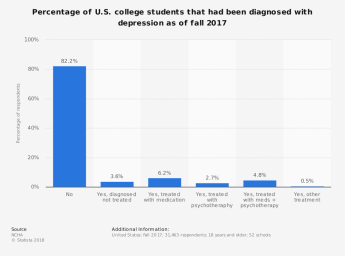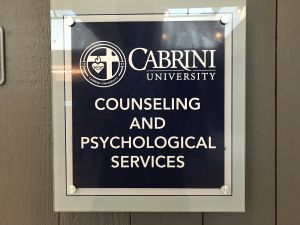It’s out there, it’s real and it’s something that affects millions of people worldwide every year. However, people don’t like to talk about it. It’s a topic that makes people uncomfortable the moment it comes up, and it rarely ever does.
Thus, it’s time for the conversation about suicide to change. September is Suicide Prevention Month, which means it’s the perfect time to start.
There are several misconceptions about suicide in college students. The first is that if someone asks another person if they are having suicidal thoughts, it might give them the idea, even if they weren’t contemplating it already.
It is very much the opposite. Talking to someone who may be struggling can really help, because just knowing you are there for them can make all the difference in the world.
“Being able to talk to someone about what they’re feeling is the key,” sophomore political science and religious studies major, Christian Jones, said. “It helps them understand that they aren’t alone.”
Another fallacy is that the pressures of school can contribute to suicide. While stressors, mental health conditions and feeling hopeless can contribute to suicidal thoughts, college can actually be a protective factor. Suicide rates are actually lower in college students than in people aged 18-22 not enrolled in school.

For years, suicide and mental health have been ignored. However, after decades of turning the other cheek, times may be changing. In recent years the conversation has shifted from what it is to how it can be prevented.
“My family kind of has a history of it,” sophomore majoring in math and finance, Monze Baeza said. “Suicide can be prevented so we should be able to talk about it.”
Roughly one in five college students experience depression or anxiety. According to Dr. Alissa Brown, the director of Counseling and Psychological services at Cabrini University, those are the most common in college students.
“Other common concerns we see frequently are eating disorders, substance abuse, trauma and difficulty adjusting to transitions,” Dr. Brown said.

There are resources on campus for people experiencing mental health symptoms or concerns. There are free, confidential counseling services available to Cabrini students. Counseling and Psychological Services, or CaPS, is located on the first floor of Grace Hall. There is also an “Ask the Counselor” form on the CaPS website and a counselor will respond. This should not be used in emergencies, but is good for learning more about mental health.
If you are experiencing suicidal thoughts yourself, please get help. Counseling is available on campus and is fully confidential. There are also 24/7 resources available. The National Suicide Prevention Hotline (1-800-273-TALK) and the Crisis Text Line (Text “START” to 741-741) are open around the clock.
If you see potential warning signs in a friend, family member or roommate, don’t be afraid to talk to them. Share your concerns, let them know you care about them and that help is available. Students can also reach out to RAs and Residence Life staff or call Public Safety if there is an immediate risk.
Suicide affects everyone, but it doesn’t have to be that way. Reach out to someone, get help. You don’t have to go it alone.


